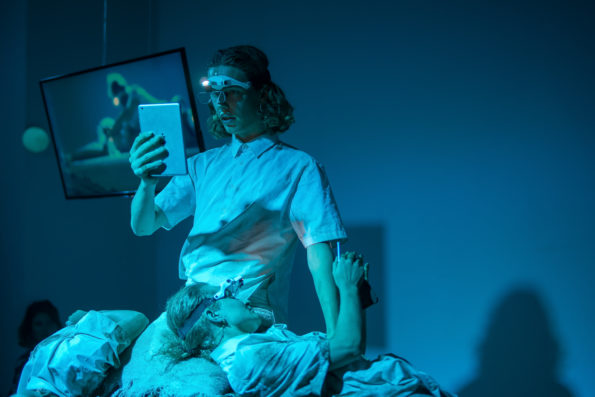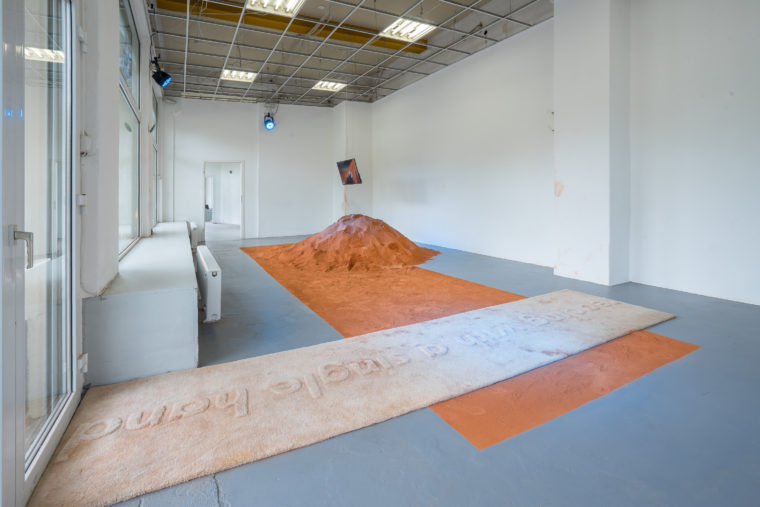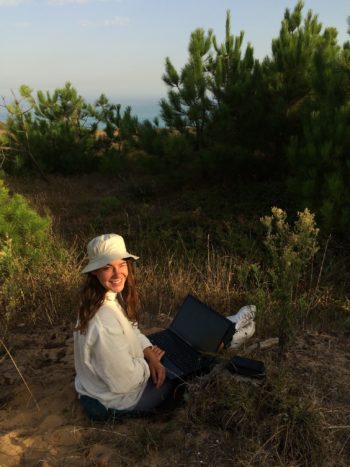Search
To search for an exact match, type the word or phrase you want in quotation marks.
A*DESK has been offering since 2002 contents about criticism and contemporary art. A*DESK has become consolidated thanks to all those who have believed in the project, all those who have followed us, debating, participating and collaborating. Many people have collaborated with A*DESK, and continue to do so. Their efforts, knowledge and belief in the project are what make it grow internationally. At A*DESK we have also generated work for over one hundred professionals in culture, from small collaborations with reviews and classes, to more prolonged and intense collaborations.
At A*DESK we believe in the need for free and universal access to culture and knowledge. We want to carry on being independent, remaining open to more ideas and opinions. If you believe in A*DESK, we need your backing to be able to continue. You can now participate in the project by supporting it. You can choose how much you want to contribute to the project.
You can decide how much you want to bring to the project.

Tap tap tap.
I slightly press the buttons on the keyboard to articulate characters that speak about the technological paradigm shift in the way we read and write. By reading a text on a technical device, both our body (mediated by the ergonomics of the object’s interface) and the text dilute its physical presence and reconfigure themselves into a kind of human-machine relationship. While I am structuring these reflections there are multiple tabs open in the internet search engine:
i. the definition of hypertext: “system of data organization based on the linking of text or graphic fragments to other fragments, which allows the user to access information not necessarily in a sequential manner but from any of the different related items” (RAE)
ii. an article from an English newspaper shared with the YOUNG GIRL READING GROUP (YGRG) on Facebook about how medical examinations influenced by male bias have deteriorated women’s health because their diseases were overlooked or misdiagnosed due to poor understanding of the functionality of the female body
iii. an article on the first telescopic lens capable of magnifying human vision three times
“Welcome to the post-literate. The Gutenberg Galaxy. Super Sad But True Love Story.”
They read aloud and in unison three performers who, lying on a mound of sand in different positions, evoke the intimacy of a room. An intimacy that is broken by the sound of their words. “Within the boudoir a new technique of the self was born. The “female cabinet” could be understood as the first space where masturbation as a body technique related to the practice of reading took place. While they show the relationality between the erotic novel and the feminine space, their gestures are exaggerated, they arch their backs until they reach uncomfortable positions. Illuminated by an LED spotlight and the blue light of the screens containing the text they feel at ease, they listen to each other – while reading.
Tap tap tap.
YGRG is a platform instigated by the artists Dorota Gawęda and Eglė Kulbokaitė that situates the body that reads and its environment as the place where a set of active and constant relationships occur, postulating the interdependence between text, knowledge exchange and technology. Her textual references are organized around feminist theory and fiction and an interest in technological emancipation. Sadie Plant wrote in 1998 that “when the term computer was applied to flesh-and-blood workers, the bodies that composed them were female. Hardware, software, wetware-before their beginnings and beyond their ends, women have been the simulators, assemblers, and programmers of digital machines. The subject recognizes her condition as a subject and tries to liberate herself through the affirmative powers that the digital, technology and digital techniques contain. If in a predominantly male world scientific theories and technological artefacts have traditionally been conceived according to linear, hierarchical and centralised models, the stratified experience and complex body (Donna Haraway) evoked by YGRG points to the advantages of interconnection, decentralisation and networking.
Tap tap tap.
–
i. The text in English in quotation marks corresponds to the script of the performance YGRG14X: reading with the single hand at Schimmel Projects Art Center Dresden, September 2019 read by Katja Cheraneva, Maansi Jain, Amadeus Vogelsang


Cristina Ramos is a freelance curator, former member of the UEP music group and writer of an unfinished book. She has recently organized exhibitions and events triggered by novels and poetry books, the sound of the sun’s radiation, the oceans and certain invasive plants.
"A desk is a dangerous place from which to watch the world" (John Le Carré)